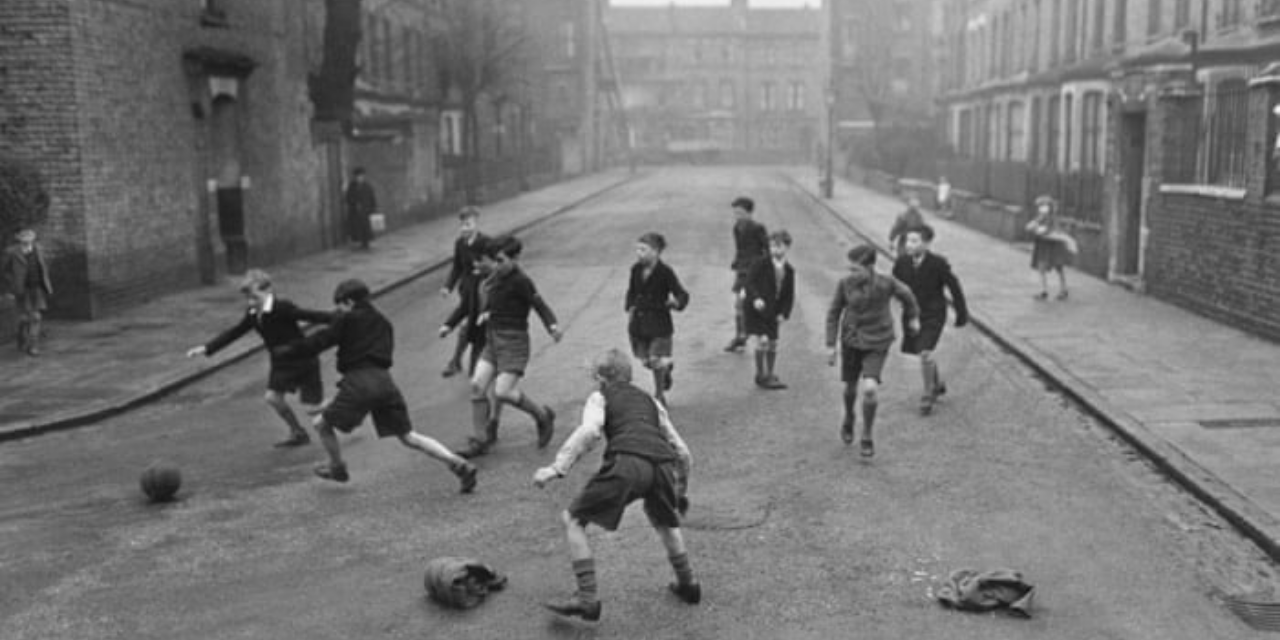It’s a scene straight out of a suburban neighborhood of many childhoods:
A wide, tree-lined street filled with century-old houses, surrounded by neatly manicured lawns – and kids. Lots of kids – running, giggling and laughing, engaged in a simple game of kickball as some parents watch from the curb or front porch and others join in the fun.
That is until the police show up and shut the game down, citing a city ordinance that prohibits people from interfering or obstructing traffic.
The drama unfolded this past Monday night here in downtown Colorado Springs on North Tejon Street. One of the original neighborhoods of our 150-year-old city, the “Old North End” is an eclectic area that stands apart from the cookie-cutter developments popping up almost everywhere else.
Two parents were ticketed by Colorado Springs Police for organizing the game, which has become a summer tradition, played on Monday nights between Memorial Day and Labor Day.
It’s not like the local police are ogres – someone had complained, and so they responded. This past Monday wasn’t the first time. Previously, the cops brought ice cream and chatted amicably with parents and kids advising them of the ordinance.
“This is a law that has to be enforced,” said Sergeant James Waters. “We see it as an important thing.”
I used to live on Tejon Street, in an old house that had been divided up into five apartments. Settling into my new place back in 1999, I remember exhaling and smiling – everything about the area brought me back to my childhood on Long Island, where we sometimes played football and hockey in the street. The power lines served as a field goal pole of sorts, which sounds very dangerous now – but something that never worried us back then.
Street hockey was an especially popular activity in New York. When a kid hollered “CAR!” the closest guy to the net would slide it over to the curb until the automobile passed and then play would resume. Nobody ever got hurt. The neighbors never called the police.
Tejon Street is a much quieter road than Central Avenue on Long Island. Neighbors say that in a 90-minute period, a half-dozen cars might drive by the game.
But the law is the law, right?
Yet is there no middle ground?
Parents in the Old North End applied for a special-events permit, but their request was turned down after they failed to acquire a sufficient number of signatures – and it was discovered that some who signed didn’t live on the street. But even if the city had approved the request, it would have cost $300 – each week.
Like any good police officer would suggest, Sgt. Waters encouraged neighbors to appeal to city council to amend the law. If you don’t like a law, you work to change it.
It seems that each older generation laments loss of varying kinds, but especially a way of life. It’s been said you really don’t miss your hometown as much as you miss the people and times you spent there.
My parents, who grew up in the 1930s and ‘40s, often spoke about not locking their doors and feeling safe on the street at midnight. My dad resented buying locks and worrying about his wife while he was away. And now here I am forty years later and longing for a time when kids could play outside on a quiet neighborhood street without being told to shut down the game.
But perhaps what disappoints me even more in this story is that it’s the parents who are organizing the game, not the kids.
One of the great charms and benefits of neighborhood life is the informal, child-led nature of play. Pick-up games, whether in the street, a yard or a nearby park that are managed by children are full of the good and the bad.
Independent play teaches kids how to get along, settle disputes and foster creativity. It prepares them for what’s coming. Insert an adult into the mix and the dynamic changes. There’s a place for that element, but eliminating it altogether is an overall loss.
I hope my old neighbors in the Old North End can find a workable solution. But I also hope parents everywhere resist the urge to manage everything in their children’s lives – and let kids be kids.






